We’ve lived around the United States, Europe, Australia and have traveled to 57+ countries. We know that people worldwide are generally good, but we’ve had some sketchy encounters with shady characters. Unfortunately, touristy locations can be breeding grounds for crimes or scams of opportunity. We’ve even personally seen unsuspecting tourists get conned in rigged games. Chances are, you will be fine. But exercise caution and be aware of common scams during your travels. Here are common scams around the world that we’ve personally experienced and read about!
Someone Chucked Chocolate Milk on my Jacket in Barcelona (What an Ass)
It was March, 2014 and we had just celebrated our 9 year wedding anniversary in Barcelona the day before. After finishing dinner on a lovely terrace in a square we started making our way back to our hotel. All of a sudden I felt something hit my back as I walked under a tree. About 10 feet behind me an elderly gentlemen of about 60 began pointing up to the tree, suggesting a bird had pooped on me. “I help you clean it” he shouted. Luckily I knew the scam and just kept walking as he continued to offer assistance. He eventually just walked back to the square in search of his next prey. Suffice to say I was pissed that the back of my jacket was covered in chocolate milk and needed to be dry cleaned.
The “Bird Poop” Scam
This is a relatively common scam that’s made its way around the world. Someone throws something on your back (chocolate milk is common) and your guard is thrown off. Sometimes this is done by someone other than the person who offers to help you clean it. Don’t let anyone near you in this situation. What they’re really looking to “clean” is your wallet and valuables from your pockets as they wipe you down.
General Taxi Scams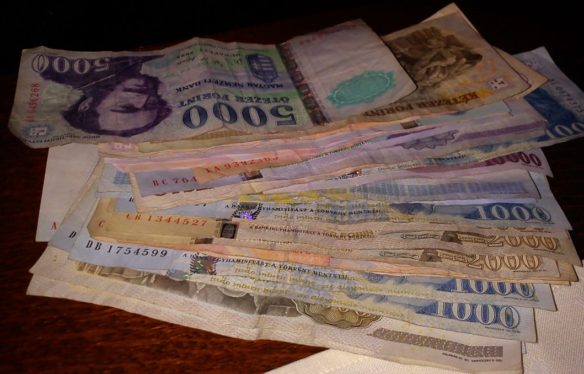
Anybody who rides taxis regularly has been taken for a ride at some point. Being taken the long way and milked for a few extra bucks is part of traveling. We try to take small losses in stride as that’s part of the journey. But you should always use officially licensed taxis or better yet, a ride share app with GPS tracking.
When you use taxis in certain countries like Argentina, try and pay in small notes. Taxi drivers have been known to take large bills and covertly swap it with a fake from their pocket. They then return the fake saying something like “This is a fake. You need to pay with a real note.”
In many countries you can now avoid the possibility of many potential taxi scams. Uber is now available in over 80 countries. In some countries where Uber is not available, there are other apps available. So do your research and avoid the possibility of taxi scams involving cash payments!
The Twilight Zone Currency Exchange Shop in Sofia, Bulgaria
Strangely, in a shop around the corner from Vitosha Blvd, the main shopping street of Sofia, Bulgaria people were actually getting an amazing deal. There was a line out the door, for good reason. Their published exchange rates for euro and US dollars were identical to what the actual going rates were. No commission either! This means they were making zero profit off of every transaction, and they were making lots of them. These guys were counting massive stacks of cash. It had to have been a front for something else, as this isn’t how currency exchange scams typically work.
If you see a currency exchange shop whose rates look too good to be true, they frequently are. The rate may look great, but the commission might be very high. Always ask what the commission is and I always ask, if I give you x notes, how many y notes do I get back? Their response should come in the form of showing you on their computer, writing it down on a piece of paper, or showing you on a calculator. If they don’t, walk away. Currency exchanges in airports and train stations usually give terrible rates. Stick with withdrawing the local currency from ATM’s to save money.
The Shady Istanbul Kebab Vendor
Istanbul is one of the world’s greatest cities for street food. I enjoyed everything from kebabs to wonderfully seasoned whole fish from street stalls. A friendly kebab vendor chatted me up, asking me where I was from and if I wanted a tour of the city. He then knew a great place to take me for drinks afterwards. He said “meet me here tonight when I get off work and I’ll take you to some fun places.” I said cool, and never turned up.
The scam:
Drinks scams are common in Istanbul and many other cities. They involve a friendly local offering to take you for a drink, maybe even “a traditional tea ceremony” like in China. Be wary as this can end up with you having to fork over for several insanely overpriced drinks. And you could even be setting yourself up to be drugged and mugged. This is unfortunate because we’ve also had good experiences with hospitable locals shouting drinks while on the road. Occasionally it can be difficult to decipher a hospitable offer from a scam. But that’s life. As a general rule, if they seem shady and call you “my friend,” don’t trust them.
Lost “Tourist” Girls in Budapest
We were last in Budapest in 2012 when I tagged along for one of Bell’s science conferences. Prior to the trip, I had already researched scams in Budapest so I was on top of things from the get go. Still, I played along for a couple minutes to see how the con unraveled.
I was actually approached by three different sets of women in Budapest. Two were in pairs and one was alone. All three encounters followed a similar format. “Excuse me sir, are you from here?” “Oh, you’re not, neither are we.” “We’re tourists from *random town* and are in Budapest for the weekend.” “We heard about this cool bar called Buddha Bar, can you help us find it on this map?” And then after a couple minutes looking over the map you’re asked, “would you like to join us?”
This is just another variation on the drinks scam. The women’s aim is to lure you into a bar with extremely overpriced drinks. They make up a story that they’re also tourists so you share something in common. They prefer men who are by themselves as they are easier targets. In Budapest lost “tourist girls” who know a good bar and ask you to accompany them = Budapest Drinks Scam.
1 Ball and 3 cups – Easy Money!
This is a favorite street con that we’ve seen played along the Thames River in London, the streets of Istanbul and several other cities. This is a great scam involving several parties because you will see people “win” the 50 euro bet. But that “winner” is a partner in on the scam.
We’ve watched but never played. Don’t ever play. The chances of you winning are zero percent. Slight of hand makes the ball disappear and then reappear in a cup you did not choose. Be careful in crowds here too. Sometimes pickpockets are hitting up the crowd while their attention is on the game. Double scam opportunity!
Where Did you Get Them Shoes? Common Scams Around the World

We’ve seen this one along the Mississippi River in New Orleans and even in the burbs of Boston. Someone will approach you saying something like, “Nice shoes. I bet you ($5-$20) I can guess where you got them shoes and where you came from.” Don’t bet. If you do, the answer is you got them shoes on your feet, and you came from your mother. There is no way you are winning that bet, and you may feel intimidated to pay up. Be polite, say no thanks to their offer and keep walking.
Here are some other ripoff opportunities to avoid.
Have a scam story or thoughts to share? Let the travel community know in the comments!

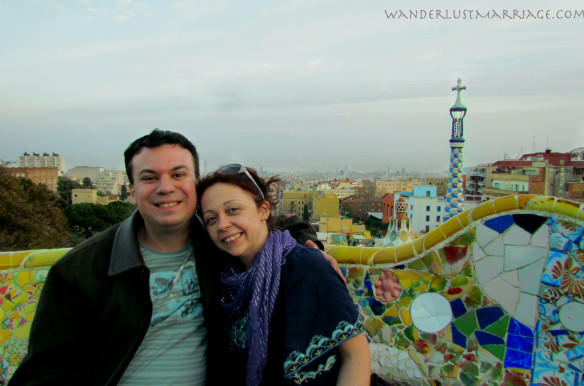
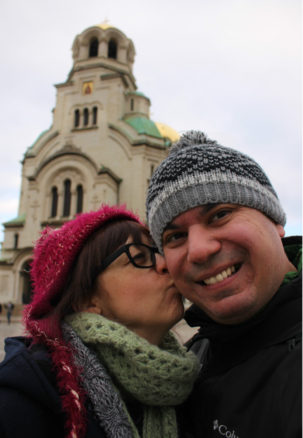
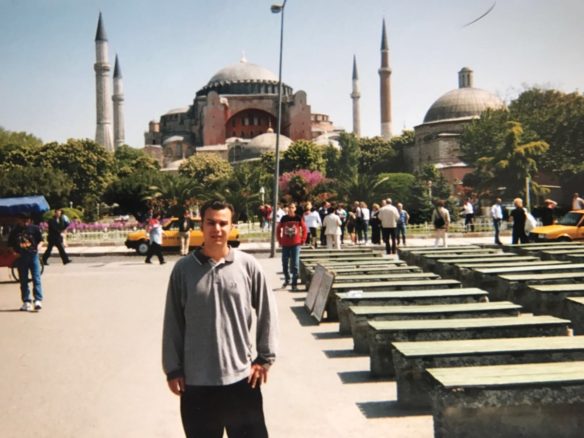





 The Lexington Hotel: A Romantic Stay in New York
The Lexington Hotel: A Romantic Stay in New York 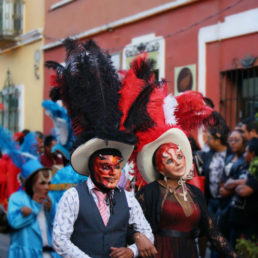 Puebla, Mexico: A Wonderful Historic Destination
Puebla, Mexico: A Wonderful Historic Destination